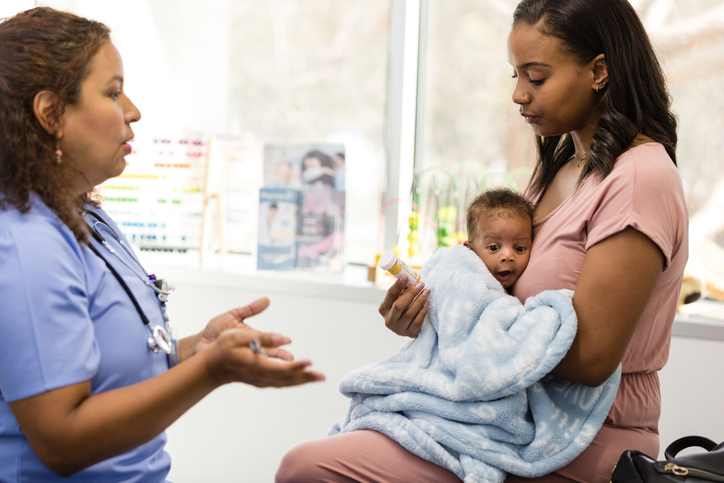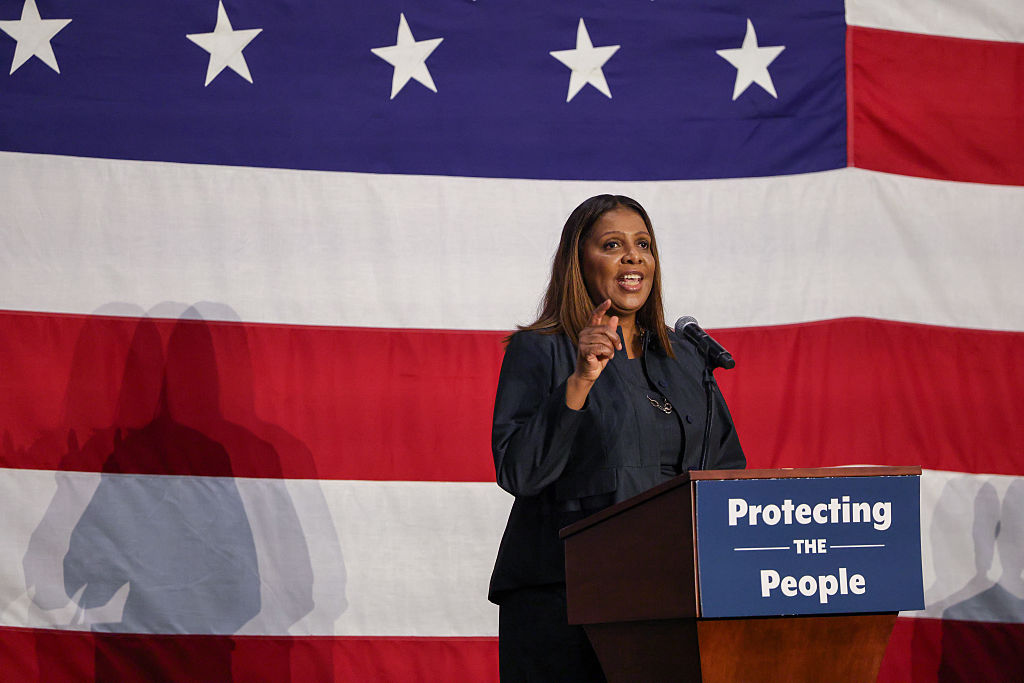Black Maternal Health: Fixing Information Gap And Inequities
National Minority Health Month: To Save Lives And Tackle Healthcare Inequities, Fix The Information Gap

Source: SDI Productions / Getty
Health inequities plaguing people of color have gotten more attention in recent years. But the latest figures show there’s a great deal of work to be done in counteracting the daily devastation. Life expectancy for Black people is 70.8 years, compared to 76.4 for white people. Black women are three times more likely to die from pregnancy than white women. The wealthiest Black women have infant mortality rates equal to those of the poorest white women.
April is National Minority Health Month, recognized by the U.S. government as a time to focus on improving the health of racial and ethnic minorities and reducing disparities. All sorts of social and economic factors contribute to health inequities, including racism, food insecurity and environmental threats, power distributions, and more. There’s one crucial factor that, all too often, gets left out of discussions: the healthcare information gap. Black people are less likely to have the information they need to make the best healthcare decisions for themselves and their families.
My team at M Booth Health and I have overseen a new study that looks at how people leverage information to make health decisions. What we found is striking, and deeply concerning.
In our survey, more than one in five Black Americans (21%), and the same percentage of Hispanic Americans, said they have gotten sick in the past 12 months because they did not have access to the health information they needed (fewer white respondents said this). They directly attributed the illness to that lack of information. This suggests that millions of people in these communities have been sick unnecessarily simply because they did not have the tools to know what they needed to know.
Seeking different sources
Why are people of color more likely to get sick due to a lack of information? Some of this is surely influenced by the “digital divide.” Black and Hispanic Americans are less likely to have a traditional computer or broadband at home. Levels of smartphone ownership are nearly the same, but some providers of healthcare information have not optimized their tools for mobile, making information harder to discover and read on a phone.
But the problem runs much deeper. For understandable reasons, many people of color have less faith that the information provided by government agencies and healthcare companies will apply to them. After generations of racism in healthcare, Black Americans and other minorities have reason to be wary. So they may turn to other places for healthcare information — which may or may not be accurate and helpful.
Our survey found that more than one-third (38%) of African-Americans seek different sources of health information because they want opinions from people who share their identity, including
their race — much higher than the 24% of white Americans who say this. Forty-one percent of Black women said they do this, compared to only 22% of white women. When they look at traditional sources of information, they don’t see people like themselves adequately represented.
They show more interest in other resources. Black survey respondents told us they’re more likely to pay attention to healthcare information on their social media feeds. These become part of their “chosen circles” — networks of trusted people and sources they turn to for healthcare information.
The opportunity for providers of healthcare information
These findings provide crucial guidance for everyone working to spread healthcare information — especially government agencies and pharmaceutical corporations. It’s up to them to build bridges and reach out to people of color where they are.
These entities need to demonstrate to Black Americans that they have their best interests in mind. They need to have knowledgeable members of these communities be the ones putting forward information. They need to reach out to better understand and connect with people in marginalized communities. The more they do this, the more lives will be saved.
Tayla Mahmud is executive vice president of Health Equity and Multicultural Strategy with M Booth Health, a health consultancy and communications agency.
SEE ALSO:
Acknowledging Black Midwives As An Essential Part Of Black Maternal Healthcare
Extending Postpartum Medicaid Coverage Is Important To Addressing The Black Maternal Health Crisis


















